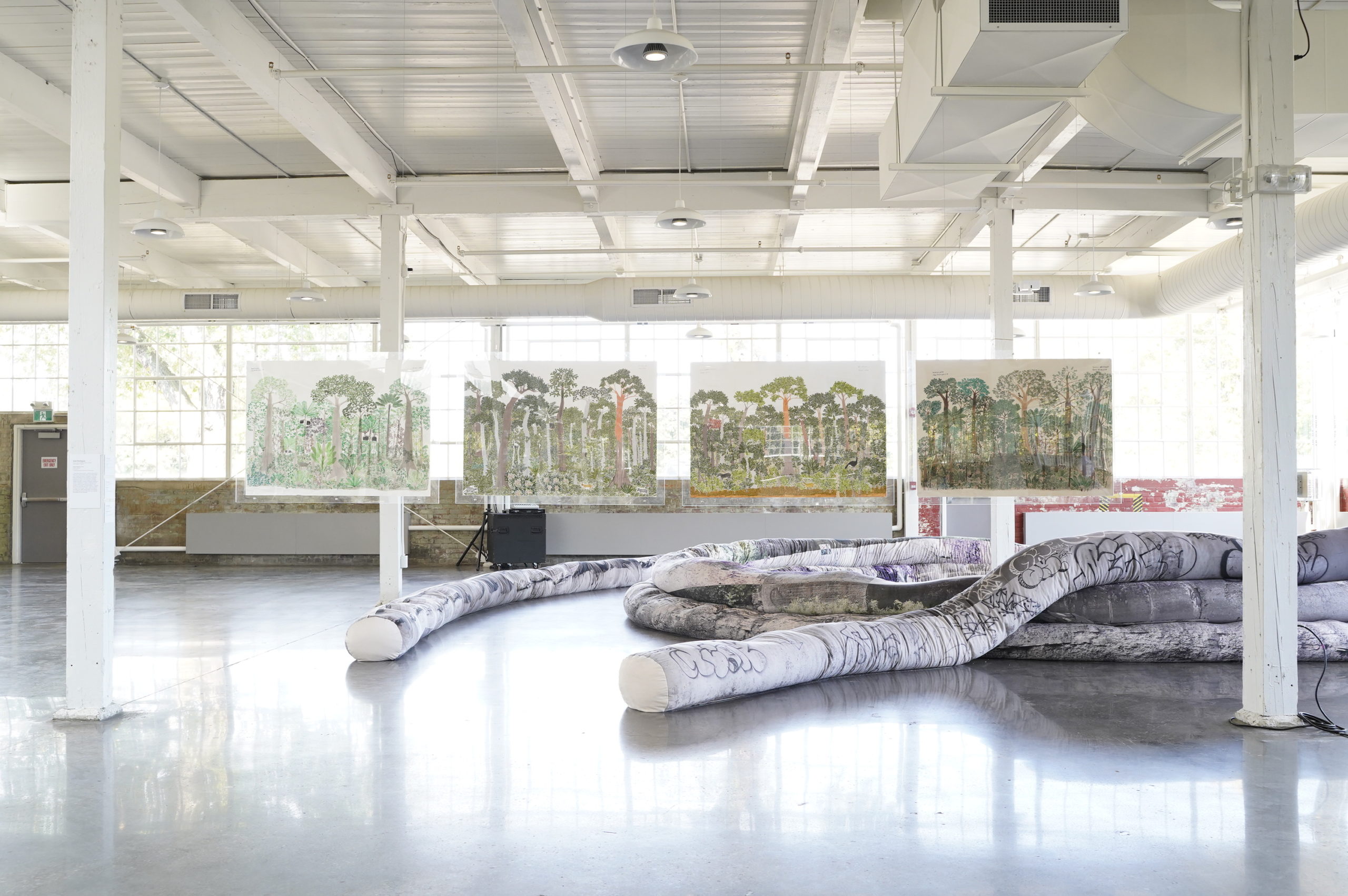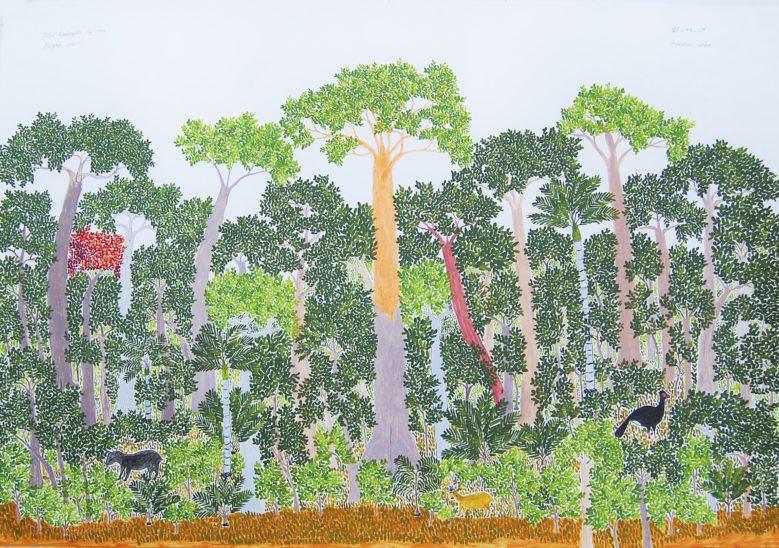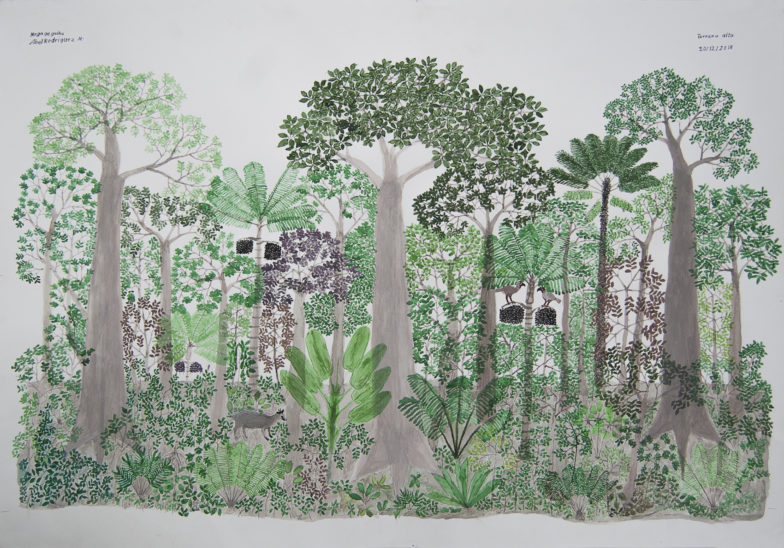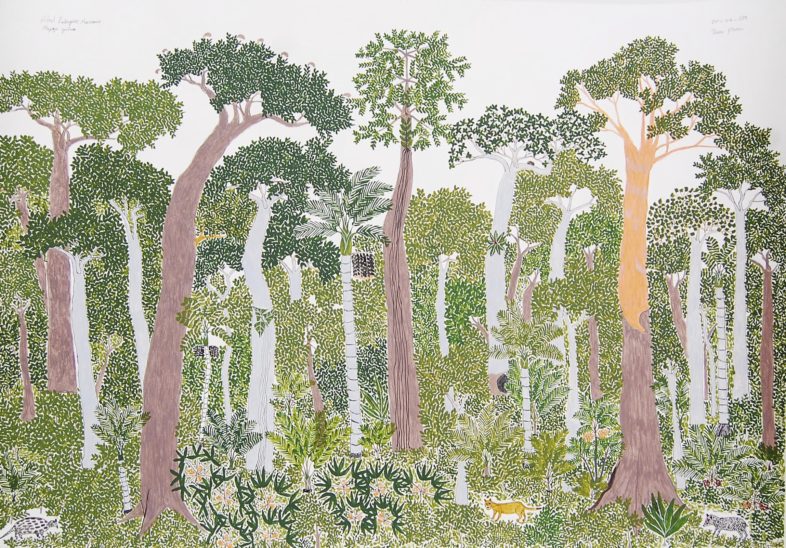September 21 – December 1, 2019
“I had never drawn before, I barely knew how to write, but I had a whole world in my mind asking me to picture the plants.” Rodríguez, a Nonuya Elder, translates his encyclopedic knowledge of plants and trees in his homeland, the Igara Paraná River region of the Amazon, into highly detailed drawings, writings, and books. Rodríguez came to drawing as a means of sharing the life cycles of plants as well as their uses for both people and animals, including healing. “I learned about the forest the hard way: I had to be awake for long hours at night, I had to lend my ears to the elders and make special diets. Our learning was a spiritual process; that is why we consider knowledge as very valuable.”
Abel Rodríguez is the recipient of the inaugural Toronto Biennial of Art Prize, awarded to recognize an artist’s outstanding contribution to the Biennial.
Bio
Abel Rodríguez (Nonuya, born in Cahuinarí region, Colombia; lives in Bogotá, Colombia) is a sage from the Nonuya ethnic group from the Cahuinarí River in the Colombian Amazon. Rodríguez has extensive ancestral knowledge of regional plants and ecosystems, transmitted to him through generations. In the 1990s, Colombian armed conflict displaced Rodríguez from his native territory, and as a way to preserve his legacy, he creates drawings that represent cultural myths and personal memories. Now in his 70s, he is considered one of the most important living artists in Colombia.
Exhibition Site
Small Arms Inspection Building (2019)
Small Arms Inspection Building was originally part of a large munitions plant built in 1940 before it was acquired and renovated as an art centre by the City of Mississauga in 2018. With its female dominated workforce, Small Arms Limited manufactured thousands of rifles daily for the Canadian and Allied forces in WWII. In 1990, the TRCA conducted an environmental audit of the site, revealing the presence of polychlorinated biphenyl, volatile organic compounds, and combustible gases across nineteen acres. More than 70,000 tons of contaminated radioactive soil was removed to eventually transform the Arsenal Lands into a park.
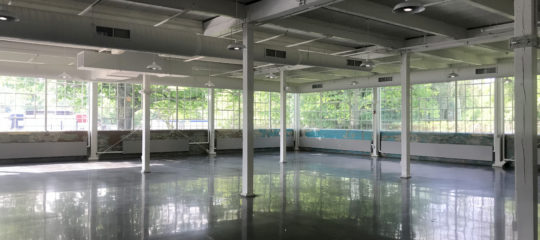
1352 Lakeshore Road East
Mississauga ON
L5E 1E9

